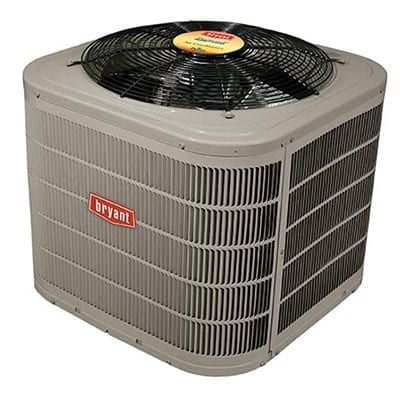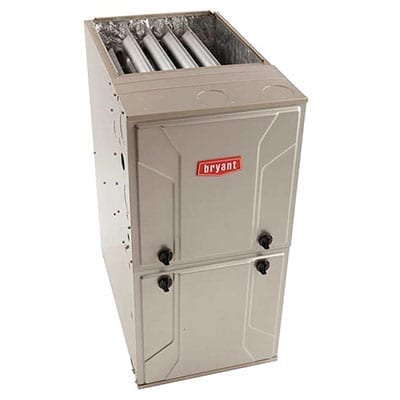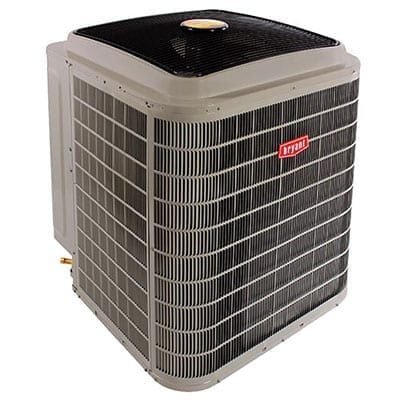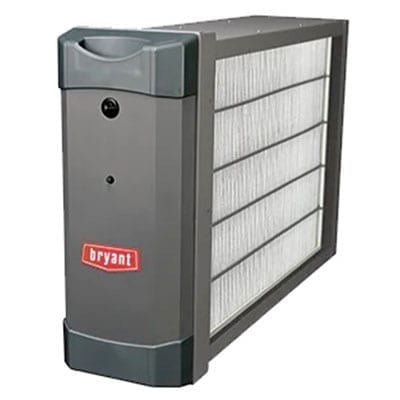Commercial HVAC for Breweries
Commercial HVAC systems play a crucial role in brewery efficiency, providing the necessary conditions for optimal beer production. These systems handle various aspects, including boilers for heating and refrigeration for cooling, ensuring the quality of the beers. Temperature and humidity control are critical factors in maintaining the quality and consistency of brews in brewing operations at a commercial brewery. This is especially important for craft beer, as brewery efficiency relies on precise control of these variables. The role of commercial HVAC in craft beer breweries cannot be overstated, as it directly impacts the overall success of brewing operations and brewery efficiency. The HVAC system plays a crucial role in maintaining the optimal temperature for the brewers and the refrigeration needs of the brewery. Brewers in the brewing industry depend on these refrigeration systems to facilitate efficient fermentation and storage processes in their commercial brewery operations, all while upholding strict quality standards. As the demand for craft beer continues to rise, reliable commercial HVAC solutions are crucial for brewing operations and brewers. The importance of refrigeration and boiler systems within the brewery market cannot be overstated.
The Essential Role of HVAC in Beer Brewing
Temperature Control
Brewing beer in a commercial brewery requires precise temperature control using steam and HVAC technology for optimal yeast fermentation and flavor development by the brewers. Commercial HVAC systems play a crucial role in maintaining the ideal temperatures needed for brewing quality beer at different stages of the process. The use of steam is essential for heating and controlling the temperature in Avery’s brewing operations. Additionally, brite tanks rely on HVAC systems to maintain the optimal conditions for fermentation and carbonation. For instance, during the brew process at Avery Brewing Company, where malt is mixed with steam to extract fermentable sugars, specific temperature ranges need to be maintained for optimal enzymatic activity in order to produce high quality beer.
Proper humidity control is also essential during brewing. Commercial HVAC systems can help regulate humidity levels within the brewery, ensuring that moisture doesn’t negatively impact the quality of the beer being produced. This is especially important in breweries that use steam to heat their Avery and brite tanks. Excessive humidity can lead to mold growth in the brewing environment and potentially contaminate the beer itself, especially in steam-powered breweries like Avery and Slocum. It is crucial to maintain proper ventilation and control moisture levels, especially around the brite tanks.
Ventilation for Air Quality
In addition to temperature and humidity regulation, proper ventilation provided by commercial HVAC systems helps ensure excellent air quality within breweries. This is particularly important when dealing with steam, tanks, and the Avery process. This is vital as unwanted odors or contaminants could compromise the taste and overall quality of craft beers being produced in brew tanks.
A well-designed ventilation system effectively removes any undesirable smells or airborne particles from various processes involved in brewing quality beer. This ensures that the tanks remain clean and the final product meets high standards. For example, when boiling wort in tanks (the liquid extracted from mashing), strong odors are generated which need to be efficiently removed from the brewery’s atmosphere.
Energy Efficiency
Efficient commercial HVAC systems not only contribute to creating an optimal environment for beer production but also offer energy-saving benefits. By utilizing modern energy-efficient equipment such as variable refrigerant flow (VRF) systems or high-efficiency boilers, breweries can reduce their overall energy consumption while meeting their unique heating and cooling demands.
Moreover, these advanced systems often come with smart controls that allow brewery owners to monitor and adjust environmental conditions remotely through user-friendly interfaces. This level of control ensures that all aspects related to heating, ventilation, and air conditioning are precisely managed without unnecessary waste.
Advances in Automated HVAC Systems for Breweries
Enhanced Control and Monitoring Capabilities
Automated HVAC systems bring advanced control and monitoring capabilities to craft breweries. These systems utilize smart sensors and programmable thermostats to optimize energy efficiency. By constantly measuring temperature, humidity, and other factors, these sensors ensure that the brewery’s environment is always at the ideal conditions for brewing. This not only maintains the quality of the beer but also reduces operational costs by minimizing energy wastage.
Smart sensors integrated into HVAC systems can detect changes in temperature or humidity levels within a brewery’s fermentation area or around bright beer tanks. For instance, if there is an unexpected rise in temperature near a bright tank, the system can immediately adjust cooling settings to prevent any damage to the beer. Such real-time adjustments are crucial as they help maintain consistent product quality while preventing potential losses due to spoilage.
Remote Access for Monitoring and Adjustment
One of the most significant advantages of automated HVAC systems for breweries is remote access capability. Brewery owners can monitor their HVAC settings from anywhere using their smartphones or computers. This means that even when they are away from the brewery site, they can keep an eye on environmental conditions and make necessary adjustments as needed.
Remote monitoring also allows owners to respond promptly to any issues without needing physical presence at the brewery location. For example, if there is a sudden spike in heating demands due to increased production during certain times of year, owners can remotely adjust boiler or steam system settings accordingly without delay.
Optimizing Temperature Control in Brewing Processes
Importance of Precise Temperature Control
Maintaining precise temperature control is crucial in various stages of the brewing process. During mashing, where malt and water are mixed to extract sugars, specific temperatures need to be maintained for enzymatic activity. In the boiling stage, precise temperature control ensures efficient extraction of hop flavors and sterilization. Furthermore, during fermentation, maintaining consistent temperatures is essential for yeast activity and flavor development.
Specialized HVAC equipment plays a vital role in achieving optimal temperature control throughout brewing operations. For instance, chillers help maintain low temperatures required during fermentation by removing heat from the fermenting beer. Heat exchangers facilitate rapid cooling post-boiling by transferring heat from hot wort to cold water. These specialized systems ensure that each stage of the brewing process occurs at the ideal temperature range.
Advanced temperature control systems, integrated within commercial HVAC setups for breweries, offer unparalleled precision in regulating temperatures across different brewing processes. By utilizing these advanced systems, breweries can significantly minimize fluctuations in room temperatures during mashing or maintain stable fermenting conditions within brite tanks.
Benefits of Advanced Temperature Control
The implementation of advanced HVAC solutions brings forth several benefits for breweries aiming to optimize their brewing processes:
-
Consistency: With precise temperature monitoring and regulation offered by specialized HVAC equipment and systems, breweries can achieve remarkable consistency in their beer production.
-
Quality Improvement: Maintaining minimal temperature fluctuations through advanced HVAC technology results in improved overall beer quality due to optimized enzymatic reactions during mashing and controlled yeast activity during fermentation.
-
Energy Efficiency: Advanced commercial HVAC solutions designed for breweries not only provide superior temperature management but also contribute to energy efficiency through optimized heating and cooling processes.
Industrial Compressors and Their Impact on Brewery Operations
Importance of Compressor Systems
Industrial compressors play a crucial role in brewery operations by providing compressed air for various processes such as bottling, kegging, and cleaning. The efficient functioning of compressor systems is essential for maintaining the required steam pressure levels to ensure consistent air pressure throughout these operations. For instance, during the bottling process, compressed air is used to operate machinery that fills bottles with beer. Without reliable steam pressure from compressors, this process could be disrupted, leading to production delays.
Compressor systems have a direct impact on brewery productivity. By delivering consistent air pressure, they contribute to the smooth running of various operations within the brewery. For example, in kegging processes where pressurized gas is used to carbonate beer or dispense it from taps, a reliable compressor system ensures that these activities are carried out efficiently without interruptions due to fluctuating air pressure levels.
Regular maintenance of compressors is vital for preventing breakdowns that can disrupt brewery operations. Neglecting maintenance can lead to issues such as leaks or decreased efficiency in delivering adequate steam pressure and consistent airflow. As a result, this can affect the quality and quantity of beer produced as well as increase downtime for repairs.
Best Practices for Maintenance
To ensure optimal performance and longevity of compressor systems in breweries, regular inspections and maintenance are imperative. This includes checking for any signs of wear and tear on components such as valves and seals which could compromise operation efficiency if not addressed promptly.
Implementing preventive measures like changing filters at recommended intervals helps maintain clean airflow through the system while reducing strain on components responsible for maintaining proper steam pressures needed across different brewing processes.
In addition to scheduled maintenance tasks like filter replacements or lubrication checks, it’s important to monitor key indicators such as temperature fluctuations or unusual sounds during operations that may signal potential issues with the compressor system.
Energy Efficiency and Cost Savings in Brewery HVAC Systems
Reduced Energy Consumption
Breweries can benefit from brewery efficiency by investing in energy-efficient HVAC systems. These systems are designed to minimize energy consumption and lower utility costs. By using high-efficiency boilers or variable speed drives, breweries can significantly reduce their overall energy usage over time. For instance, a brewery that upgrades its old boiler unit to a new, high-efficiency one might experience a noticeable decrease in its monthly energy bills.
Implementing proper insulation and sealing for ductwork also plays a crucial role in minimizing energy loss within the brewery’s HVAC system. This not only helps reduce the amount of wasted energy but also improves the overall performance of the system. With reduced energy consumption, breweries can operate more sustainably while enjoying substantial cost savings.
Investing in an efficient commercial HVAC system offers several key advantages for breweries:
-
Pros:
-
Lower operational costs
-
Reduced environmental impact
-
Enhanced long-term sustainability
Financial Benefits
The implementation of an energy-efficient HVAC system brings about significant financial benefits for breweries. While there is an initial investment involved, the long-term cost savings make it a worthwhile endeavor. Breweries that prioritize energy efficiency will see notable reductions in their utility expenses over time.
For example, consider a brewery that invests in scalable heating equipment with advanced control features tailored to match varying production levels. Such flexibility allows the brewery to optimize its heating operations based on demand, leading to improved resource utilization and reduced operational costs.
In addition to direct cost savings through reduced energy consumption, breweries may also qualify for various incentives or rebates offered by government agencies or utility companies as part of their efforts to promote sustainable practices.
-
Cons:
-
Initial investment required
-
Potential need for retrofitting existing systems
Glycol Chillers: Enhancing Brewery Cooling Techniques
Precise Temperature Control
Glycol chillers play a pivotal role in maintaining the ideal temperature for various processes within breweries. They are extensively used to cool fermentation vessels, bright tanks, and serving lines. By utilizing a mixture of water and glycol, these chillers ensure precise temperature control during the brewing process.
Breweries rely on chilled water systems that incorporate glycol as an essential component to efficiently regulate temperatures. The use of glycol in these systems prevents freezing at lower temperatures, making it suitable for cooling applications in brewery operations. This capability is crucial for maintaining the quality and consistency of beer production.
The integration of glycol chillers enables breweries to achieve optimal fermentation conditions by closely monitoring and controlling the temperature throughout the brewing stages. This results in higher-quality beer with consistent flavor profiles, meeting consumer expectations while enhancing brand reputation.
Flexibility and Scalability
One significant advantage of incorporating glycol chillers into brewery HVAC systems is their flexibility and scalability. These systems offer the flexibility to adapt to varying cooling requirements based on production volumes or seasonal demands within the brewery environment.
When breweries experience growth or expansion, glycol chillers provide a scalable solution that can accommodate increased cooling needs without requiring extensive overhauls or replacements. Breweries can easily expand their cooling capacity by integrating additional units or upgrading existing equipment, ensuring seamless operations even as production scales up.
The ability to scale up cooling capacity aligns with efforts toward energy efficiency discussed earlier in this article’s preceding section (“Energy Efficiency and Cost Savings in Brewery HVAC Systems”). By optimizing cooling resources through scalable solutions like glycol chillers, breweries can effectively manage energy consumption while meeting evolving production demands.
Taproom Comfort and the Importance of Ambience
Creating a Pleasant Atmosphere
Breweries and taprooms rely on commercial HVAC systems to maintain a comfortable environment for patrons. The right temperature control is essential to ensure that customers can savor their beer in a relaxing setting. For instance, during hot summer months, the cooling system needs to work efficiently to keep the space comfortably cool without being too cold.
Maintaining optimal humidity levels is equally important as it helps prevent condensation issues and mold growth. By ensuring balanced humidity, breweries can avoid moisture-related problems that could affect both the comfort of patrons and the integrity of their products. With reliable commercial HVAC systems, brewery owners can create an inviting atmosphere where visitors can enjoy their drinks while feeling comfortable.
Enhancing Safety and Quality
The role of commercial HVAC for breweries goes beyond maintaining comfort; it also contributes significantly to safety and quality. Proper ventilation provided by these systems ensures that indoor air remains fresh by reducing odors from brewing processes or cooking in brewpubs. This not only enhances customer experience but also creates a healthier environment for both guests and staff.
Moreover, efficient air filtration within these HVAC units plays a key role in maintaining high indoor air quality. This is crucial for ensuring that airborne contaminants are effectively removed from the brewery’s interior spaces, contributing to a safer environment overall. By providing clean, well-ventilated air throughout taprooms and brewpubs, commercial HVAC systems help uphold health standards while delivering an enjoyable experience for visitors.
Maintenance Strategies for Brewery HVAC Reliability
Importance of Regular Maintenance
Regular maintenance of commercial HVAC systems in breweries is crucial to ensure their reliable operation. Scheduled inspections, filter replacements, and cleaning play a vital role in preventing breakdowns and extending the lifespan of the equipment. Without proper maintenance, these systems can experience reduced efficiency, higher energy consumption, and an increased risk of malfunctions.
Breweries rely on consistent temperature control to maintain the quality and taste of their products. If the HVAC system fails due to neglect or lack of maintenance, it could lead to fluctuations in temperature and humidity levels which may affect beer production. This emphasizes the significance of adhering to a regular maintenance schedule for brewery HVAC systems.
It’s essential for brewery owners to understand that professional maintenance not only prevents unexpected breakdowns but also ensures optimal performance during peak production times. By partnering with professional HVAC technicians familiar with brewery-specific requirements, owners can rest assured that their systems are being properly cared for by experts who understand the unique demands placed on them within a brewery environment.
Preventive Measures
Scheduled inspections should be conducted at least twice a year by experienced technicians who specialize in commercial HVAC for breweries. During these inspections, they will thoroughly examine all components including air handlers, compressors, condenser coils, evaporator coils, electrical connections, and refrigerant levels. Any worn-out parts or potential issues can be identified early on before they escalate into major problems.
Filter replacements are another critical aspect of maintaining brewery HVAC reliability. Clogged filters restrict airflow leading to decreased efficiency and strain on the entire system which could result in higher energy consumption if left unaddressed. Regularly changing filters helps prevent this issue while also ensuring better indoor air quality within the brewery taproom area.
In addition to filter replacements and scheduled inspections; regular cleaning is equally important as it helps remove dust accumulation from various components such as coils and fans which can impede airflow if left unchecked over time.
By prioritizing routine maintenance tasks like scheduled inspections with specialized professionals along with timely filter replacements and thorough cleaning; breweries can significantly reduce downtime due to unexpected failures while prolonging the life expectancy of their valuable HVAC equipment.
Sustainable Facility Solutions and Future HVAC Technologies in Brewing
Energy Recovery Systems
Breweries, in their quest for sustainability, are increasingly turning to innovative solutions like energy recovery systems. These systems, such as heat exchangers or cogeneration units, play a crucial role in harnessing waste heat from brewing processes. By capturing this excess heat and repurposing it for other operations within the brewery, companies can significantly reduce their overall energy consumption. For instance, a brewery could use the recovered heat to warm water for the next brewing cycle or provide heating for other parts of the facility.
Moreover, these hvac technologies not only contribute to sustainability but also lead to cost savings by minimizing the need for additional energy sources. This underscores an essential benefit of integrating energy recovery systems into commercial HVAC setups within breweries.
Advancements in HVAC Technologies
The future of sustainable brewing lies in embracing advancements in hvac technology that offer promising options for reducing environmental impact and enhancing operational efficiency. One such innovation is geothermal HVAC systems which tap into stable underground temperatures to regulate indoor climate control without relying heavily on traditional power sources. This presents an excellent opportunity for breweries seeking long-term sustainable solutions while catering to their substantial heating and cooling needs.
Solar-powered solutions represent another avenue through which breweries can align with green initiatives while meeting their capacity requirements effectively. By leveraging solar panels to generate electricity needed for various aspects of production and operation, breweries can lessen their reliance on non-renewable resources while contributing positively towards environmental conservation efforts.
Conclusion on Upgrading Brewery HVAC Systems
Importance of Upgrading
Brewery owners understand the hvac needs for maintaining beer quality and optimizing operations. Upgrading the HVAC system is crucial for ensuring that the beer produced maintains its high quality. By investing in automated controls, breweries can efficiently monitor and adjust temperature and humidity levels to meet specific brewing requirements. This level of control is essential for maintaining the consistency and quality of the beer, which is a top priority for any brewery.
By upgrading to energy-efficient equipment, breweries can significantly reduce their energy costs. For instance, replacing older heating and cooling units with newer, more efficient models can lead to substantial cost savings over time. Proper maintenance of the HVAC system ensures long-term reliability and efficiency. This includes regular filter changes, system inspections, and addressing any issues promptly to prevent costly breakdowns.
Enhancing Brewing Processes
Prioritizing temperature control is vital for brewing processes. Maintaining specific temperatures during fermentation is critical for producing high-quality beer. With an upgraded HVAC system, breweries can ensure precise temperature regulation throughout the brewing process, leading to consistent and superior beer production.
Moreover, air quality plays a significant role in brewing beer. Proper ventilation and air filtration are essential for maintaining a clean and healthy environment within the brewery. By investing in advanced air filtration systems, breweries can effectively remove impurities from the air, ensuring that the brewing process remains uncontaminated.
Customer Comfort and Taproom Experience
In addition to optimizing brewing processes, an upgraded HVAC system also contributes to enhancing customer comfort within the brewery’s taproom. A well-maintained HVAC system provides a comfortable environment for patrons to enjoy their favorite brews. Whether it’s ensuring a cool and refreshing atmosphere during hot summer months or maintaining warmth on chilly evenings, a reliable HVAC system enhances the overall taproom experience.
By prioritizing customer comfort through effective temperature control and air quality management, breweries can create a welcoming environment that encourages patrons to spend more time enjoying their offerings. This not only improves customer satisfaction but also contributes to increased sales and positive word-of-mouth marketing.
In conclusion, upgrading commercial HVAC for breweries is essential for maintaining beer quality, optimizing operations, reducing energy costs, prioritizing temperature control, ensuring air quality, and enhancing customer comfort. By investing in advanced equipment and focusing on proper maintenance, breweries can achieve long-term reliability while delivering exceptional brewing experiences.
Frequently Asked Questions
What is the role of HVAC in beer brewing?
HVAC systems maintain precise temperature and humidity levels crucial for the fermentation and storage of beer. They also control air quality to prevent contamination, ensuring consistent product quality.
How do industrial compressors impact brewery operations?
Industrial compressors are essential for maintaining proper pressure levels during various stages of brewing, such as aeration, carbonation, and packaging processes.
What are glycol chillers and how do they enhance brewery cooling techniques?
Glycol chillers use a food-grade antifreeze solution to cool beer at low temperatures without freezing it. This allows brewers to precisely control the fermentation process and maintain consistent product quality.
Why is taproom comfort important for breweries?
Creating a comfortable environment in the taproom not only enhances customer experience but also influences their perception of the beer’s taste. Proper temperature control contributes to an enjoyable atmosphere.
What maintenance strategies are crucial for reliable brewery HVAC systems?
Regular cleaning of ducts, filters, coils, and vents is vital to prevent microbial growth or contamination that could affect both product quality and system efficiency. Routine inspections help identify potential issues early on.
Related Information
Commercial HVAC for Candle Shops
Commercial HVAC for Camera Shops
Commercial HVAC for Cafes
Commercial HVAC for Bridal Shops
Commercial HVAC for Bowling Alleys
Commercial HVAC for Boutique Retail Shops
Commercial HVAC for Bookstores
Commercial HVAC for Bed-and-Breakfast Inns
Commercial HVAC for Barbershops
The Primary Services Provided By Our Local HVAC Company
Areas We Service
Click on the area below to see what your neighbors are saying about their recent experiences with our company.
Our Locations
14913 SE Kellogg Ave
Milwaukie, OR 97267, USA
4409 SE 24th Ave, Suite 35
Portland, OR 97202, USA




